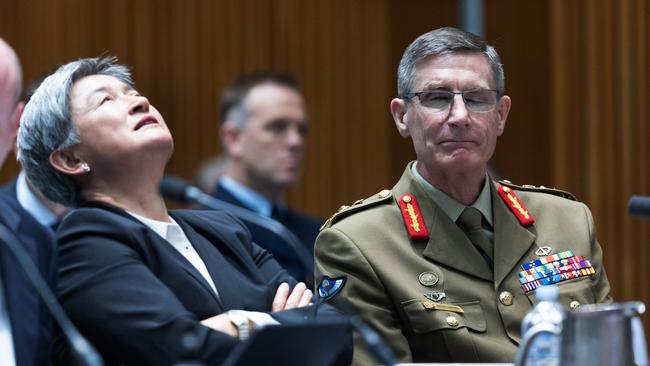
Standing with US President Joe Biden and British Prime Minister Rishi Sunak in San Diego, California last month, Anthony Albanese said: “I look out from here today and I see new frontiers in innovation to cross, new breakthroughs in technology to achieve, a new course for us to chart together.”
In a seven-minute speech the Prime Minister referred to innovation six times. He is right to do so because delivering the technology anticipated by AUKUS will call on capabilities for invention and design at a level unseen in Australia. The early delivery of US pre-owned, built and designed Virginia-class subs to Australia in the late 2020s is the lowest risk AUKUS technology.
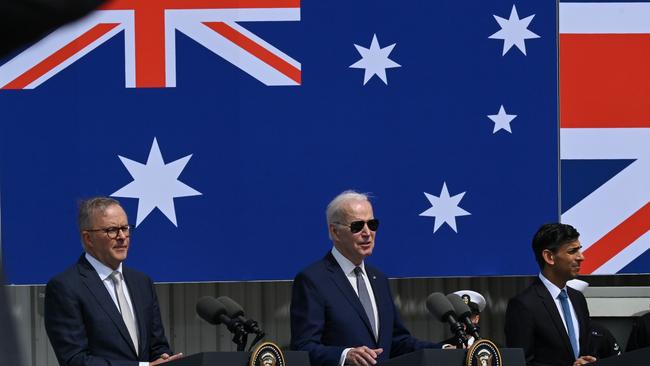
After that the three countries will be pushing the boundaries of scientific and technical know-how. Beyond the subs, AUKUS pillar two anticipates technological breakthroughs in quantum computing, artificial intelligence and machine learning, undersea systems, autonomous vehicles, hypersonic platforms and cyber technology.
The obvious strength of AUKUS is that it pools the defence industrial and technological know-how of three countries, but the risk for Albanese is that Defence and industry will not be able to rapidly deliver the innovation AUKUS demands.
Will Defence be able to build and sustain a momentum for technological innovation? That is key to AUKUS success. Albanese and Defence Minister Richard Marles should take every opportunity to assure themselves that this organisational weakness is being fixed.
The good news is that we may have within our reach a plan for making Defence more innovative and agile in the form of the Defence Innovation Review written for the Morrison government by former Rio Tinto Australia managing director David Peever and a private sector team.
For reasons that are not publicly obvious, the report seems to be buried without the Albanese government seeing it.
A few days before the San Diego announcements, Defence released a heavily censored version of Peever’s study. Barely 20 paragraphs of a 130-page review have been made available, all heavily censored. The study is reported to have cost $2m. It was announced on September 13, 2021, by defence industry minister Melissa Price. The purpose was to quickly “examine the Defence organisation in its entirety to establish how it can more effectively deliver homegrown, innovative capabilities”.
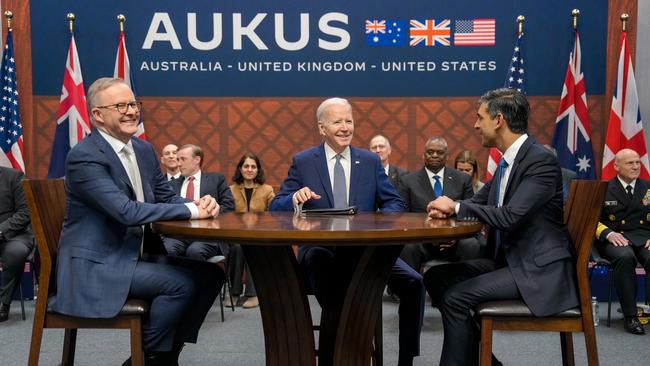
Price told The Australian: “I have given clear instructions to David Peever that the system is not performing as well as I would like and we need to know what the solutions are to solve the challenges in this area. Many of our industry stakeholders have called – sometimes very loudly – for the innovation system in Defence to be overhauled to better match our strategic circumstances.”
Two days later Scott Morrison delivered his AUKUS bombshell. The need for more innovative capacity became publicly clear.
Peever finished his report in December 2021. He had deep experience of Defence, having reviewed the department’s managerial capabilities in 2015. His innovation study was not released by the Morrison government, perhaps distracted by the looming election. In December last year, seven months after Albanese was elected, technology magazine InnovationAus.com, asked Defence about the fate of Peever’s review. It was told by a Defence Department spokesperson the report “would not be available to the Albanese government and Defence Industry Minister Pat Conroy. ‘The current government does not have access to the Peever review, as the review was commissioned by the previous government.’ ”
We now have the drastically cut-down report, completely unusable in this form. Peever’s assessment of Defence’s innovative capabilities, positive or negative, is not revealed. We do not know his recommendations and the current government seems not to have access to a $2m report that goes to the core of Defence’s ability to deliver the AUKUS plan.
Some questions need to be asked. A sensible convention stops a previous government’s cabinet deliberations from being handed to a new government. But the Peever review was not a cabinet document.

Surely a review commissioned by a previous government can, in some form, be handed to a new government? If that were impossible the AUKUS 18-month pathway findings could not have been handed to Albanese.
Marles and Conroy could certainly ask Peever for an updated version of his work. They could surely get Peter Dutton’s agreement for Marles to see the old report, in the interests of a bipartisan approach to AUKUS.
As all documents prepared for release under the Freedom of Information Act require, Defence gives its reasons for censoring, or redacting, the vast bulk of the report. These come down to concerns about potential harm to national security, defence and foreign relations, the “deliberative processes” of the previous government, and that the review’s release would or could “have a substantial adverse effect on the proper and efficient conduct of an agency”.
The last reason could easily cut across a government view “that the system is not performing”. The report is marked “confidential and proprietary” but that is not a national security classification. Without that security justification, a decision to redact the document so heavily could be tested further.
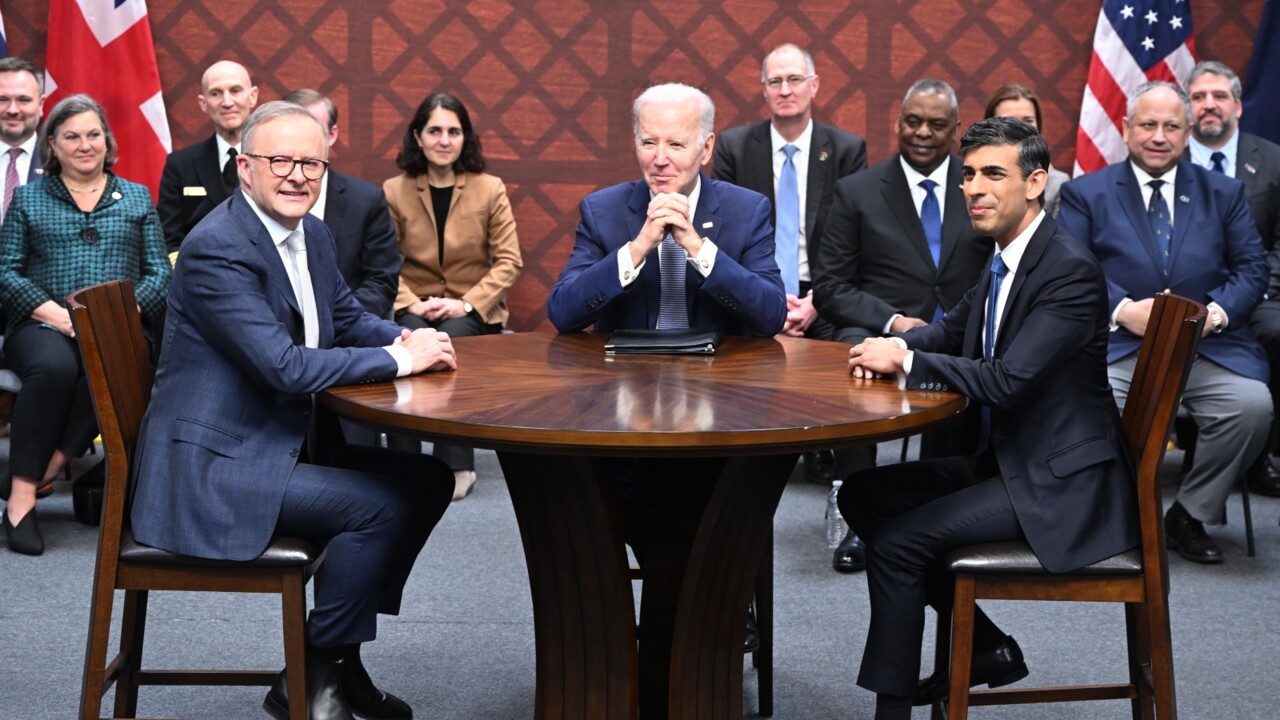
The FOI Act’s intent is to err on the side of releasing information, national security allowing. The act is not to shield government departments when handling a potentially critical external review.
It may be that Defence is about to respond to Peever’s review with advice to government accepting his many recommendations. Or it may be that Defence has tried to bury the report, thinking its past processes will deliver the AUKUS goods.
On Wednesday The Australian’s David Penberthy reported on the fate of the 2016 Nuclear Fuel Cycle Royal Commission headed by former South Australian governor Kevin Scarce. This delivered a detailed 360-page report recommending the creation of a nuclear waste disposal facility in SA’s outback.
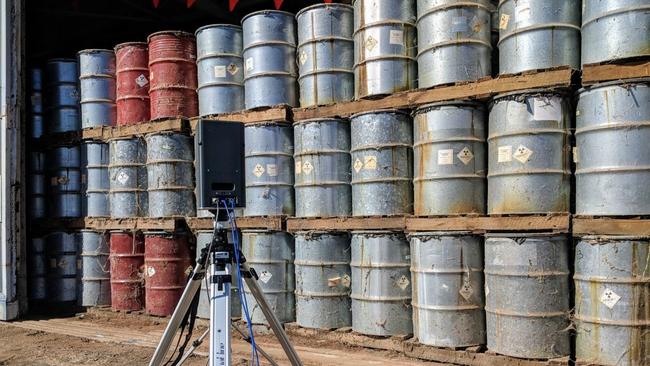
The report died for unworthy political reasons. Consider how valuable it would have been for the SA government to have pursued this opportunity in the light of the AUKUS initiative. In public administration it is so often the case that the answer to policy problems is in plain sight, but seemingly not reachable because they cut across political or bureaucratic comfort zones.
Marles and Conroy need to re-examine how the government and Defence will build a system that better encourages speedy innovation. Doing so reduces the risk that AUKUS might fail in its delivery. Allowing the Peever review to sink without trace would be a critical lead indicator of future problems. It’s the government’s call.





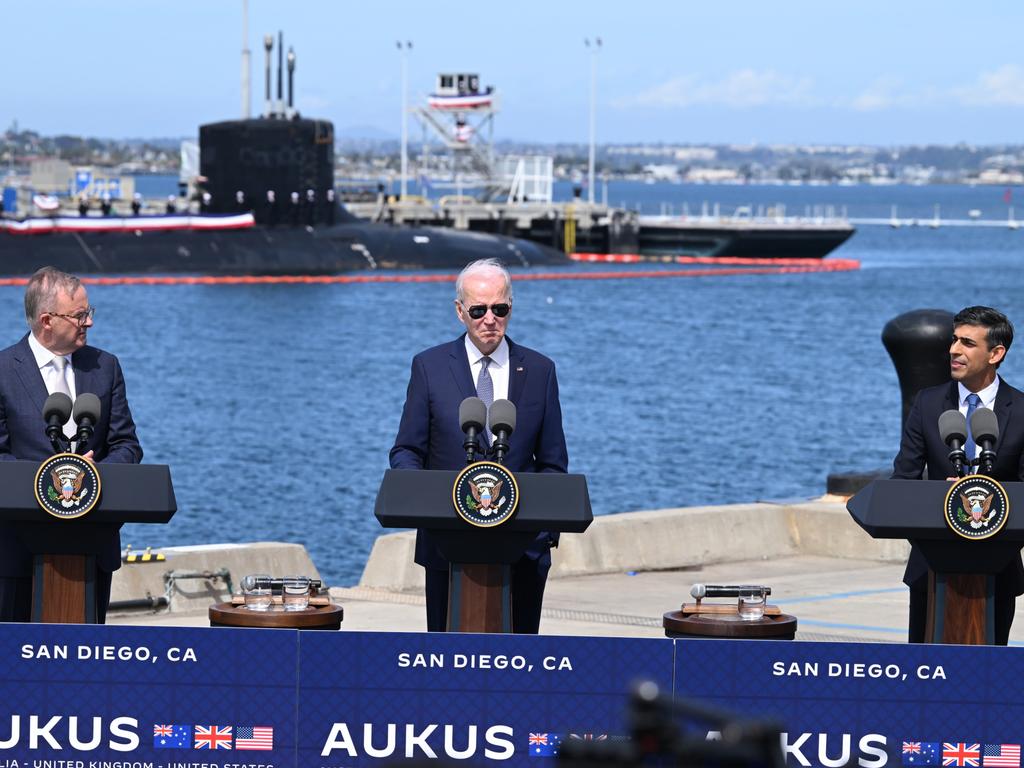


The media headlines were all about submarines but innovation will be the productive core of the AUKUS agreement. This presents a huge stretch target for Defence and industry.